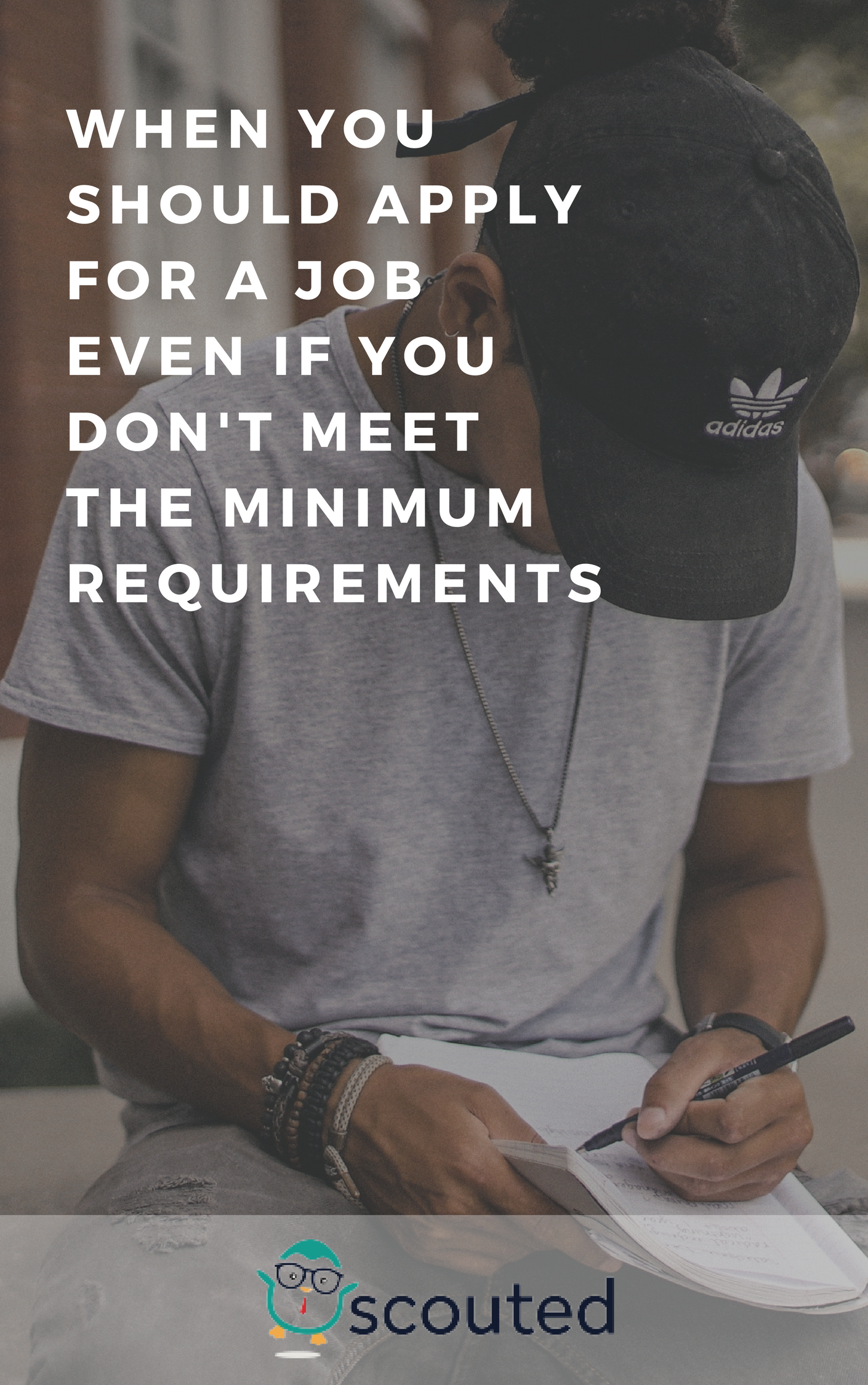Sure, applying to jobs can be scary and the idea of rejection is never a happy one. Even so, you never don’t want to be the only reason behind why you didn’t get a job that was great for you. Don’t be the one to take yourself out of the running. You never know, the hiring team might just love someone with your problem-solving abilities and might be willing to fill you in on the rest.
So if you’re thinking of applying for that job that scares you just a little bit, we say (within some range of reason) go for it!
Also on Mediabistro


Think about your transferable skills
So your previous work experience might not make an obvious beeline to the job you’re applying for. Even so, some of the same skills and experience could very well be useful in the position you hope to get. Things like team or project management, written and oral communication, analytical skills, are all great examples of skills that could easily transfer from one job to another, even if the two jobs aren’t exactly related.
One great skill that will come in handy no matter what job you’re after is your ability to think critically and problem-solve. Hiring managers these days are moving away from the idea that you hire an employee, train them, and they are responsible for that job and that job only. More and more, managers are wanting employees to take ownership over a role and that often means taking on creative problem-solving.
When you’re just short on experience
So under the list of bulleted requirements, you read that the job you want requires 5 to 7 years experience in a field you only have 3 to 5 years experience in. Don’t think you’re out of the running just yet. Why not apply and send along a work example to show the hiring manager that you really could do the job? Katy from ToughNickel says that while years of experience might have a hard cutoff for some job postings, “Other postings treat the listed years of experience required as a general guideline for who should apply and then the salary of the selected candidate is determined by their years of experience.”
That said, if you’re well under the required years of experience, you might want to consider moving on and finding something within the same ballpark. You might even think about applying for a more junior role at the same company. That way, once you’ve gained a tad more experience and built relationships at the company, you may have earned yourself enough clout go over the role that required more experience.
[sc name=“Newsletter”]
If you don’t have the required degree
Depending on the job description, having the exact degree for the job may or may not be a big deal. Some will require that you simply have a degree- any degree. Others will want you do have a specific degree or certifications for the job. And other job descriptions might say that a degree is preferred. If a specific degree or certification is listed as required, it might be a better idea to move on, especially if you’re applying through an online portal where an ATS will filter you out before any human eyes can even see your application. If you can, why not see if you can try to make a personal connection at the company. Speaking with a human and stating your case can and may be your best bet to bypass an automated filtering system.
If you have an “in” at the company
According to Business Insider, your chances of landing a job if you have a referral from someone who already works there is up to 6.6% higher. That might sound like a small percentage, which can be an encouragement to you if don’t know a soul at the company you’re applying to work for. But as BI puts it, “Boosting the odds of getting a job offer by roughly 5% would mean on average that 1 in 20 workers gets a job offer who wouldn’t have otherwise gotten one.”
So could making a connection at the company make a difference? Sure! And don’t feel as though your connection needs to be one of your drinking buddies. This study shows that acquaintances are actually 58% more likely to connect you with a job than a close friend or family member. Quartz puts it this way: “Our closest contacts tend to know the same people and information as we do. Weak ties travel in different circles and learn different things, so they can offer us more efficient access to novel information.”
If you can prove you can do the job, and well
Last but not least, employers will- for the most part- boil down their hiring decision to one thing: who is going to be the most effective employee and yield the highest return. Do what you can to make your application process personal and stand out from the crown. Try not to be a stalker and catch the founder of your favorite company on his or her bathroom break to tell them why you’d be great at the job. Maybe try connecting on LinkedIn and sending them a personal message. Ask them if you might be able to send along a few ideas that you think really could help the department where you want to work. The worst they could do is say, “Yeah, no thanks.” That, or take advantage of the time you offer. OR, it could be just the opportunity you need to show exactly how well you’d do if they gave you the job.
Have you ever applied to a job when you didn’t meet the minimum requirements and gotten an interview? Share your story in the comments below and share with a friend who needs to make a leap of faith.





